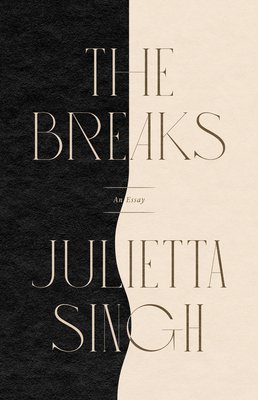Julietta Singh and Queer Time
One of the most intriguing panels that we have put together this year is called Queer Time. Featuring Maia Kobabe, Ames Hawkins, and today’s author, Julietta Singh, the panelists will consider the complex relationship between time and queerness. Whether it’s experiencing life stages out of order, finding rebirth through transition, or the way the AIDS crisis gave many the sense (and reality) of a shortened lifespan, time can run much differently for queer people. We’re looking forward to it and so thrilled to welcome Julietta to Unbound!
Julietta Singh is a decolonial scholar and nonfiction writer whose work engages the enduring global effects of colonization through attention to ecology, inheritance, race, gender and sexuality. She works and teaches across the fields of postcolonial and decolonial studies, queer studies, the ecological humanities, experimental feminisms, and creative nonfictions. Her academic work has been published in South Atlantic Quarterly, Women & Performance, Social Text, Cultural Critique, and Studies in Gender and Sexuality, among others. She is the recent recipient of the American Council for Learned Societies Frederick Burkhardt Fellowship (held at Columbia University’s Institute for the Study of Sexuality and Gender), and delivers keynotes, lectures, and creative workshops internationally. Her first academic book, Unthinking Mastery: Dehumanism and Decolonial Entanglements (Duke UP, 2018), has emerged as a vital theoretical touchstone for global scholars and artists grappling with the politics of mastery that drive our professional, political, and personal pursuits. Her second book, No Archive Will Restore You (Punctum Books, 2018), turns theory into creative praxis through an experimental meditation on the body as a plural and porous archive. In her newest work, The Breaks, Singh pens a long letter to her young daughter about race, inheritance, and queer mothering at the end of the world. It has recently been hailed as a best nonfiction book of the year by entities such as the New York Public Library, Book Riot, and the Seminary Co-op Bookstore.


